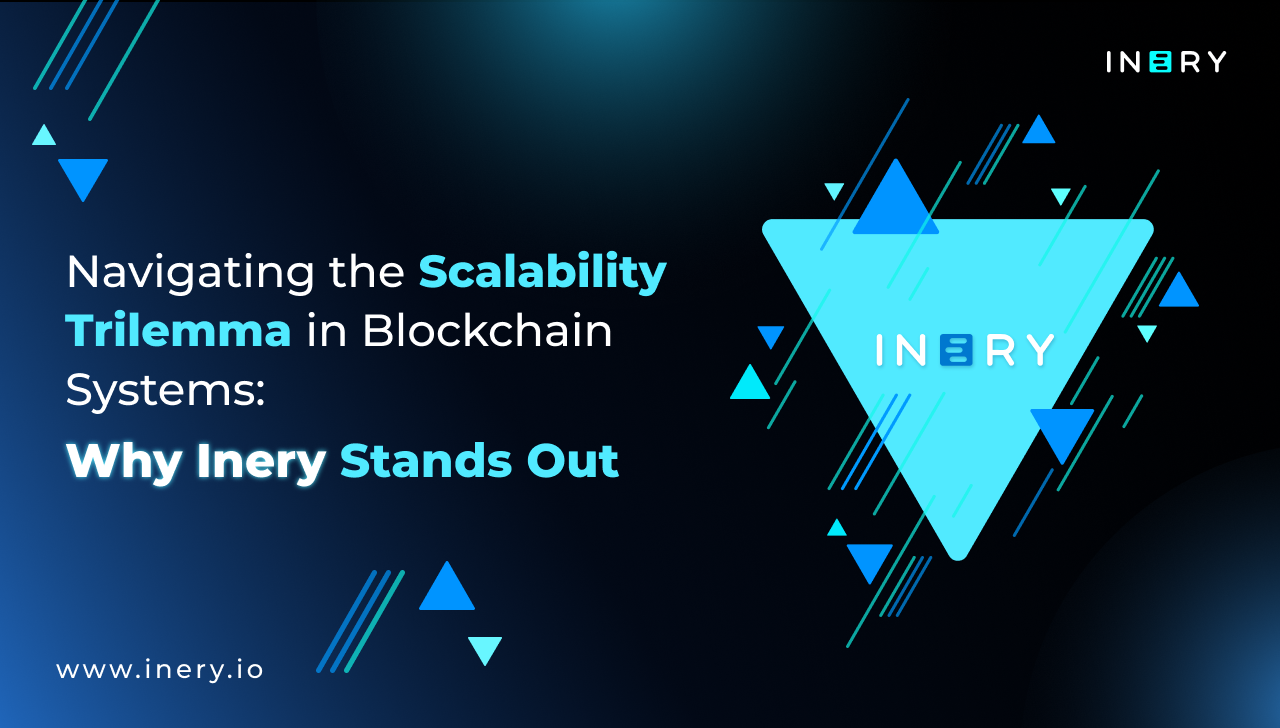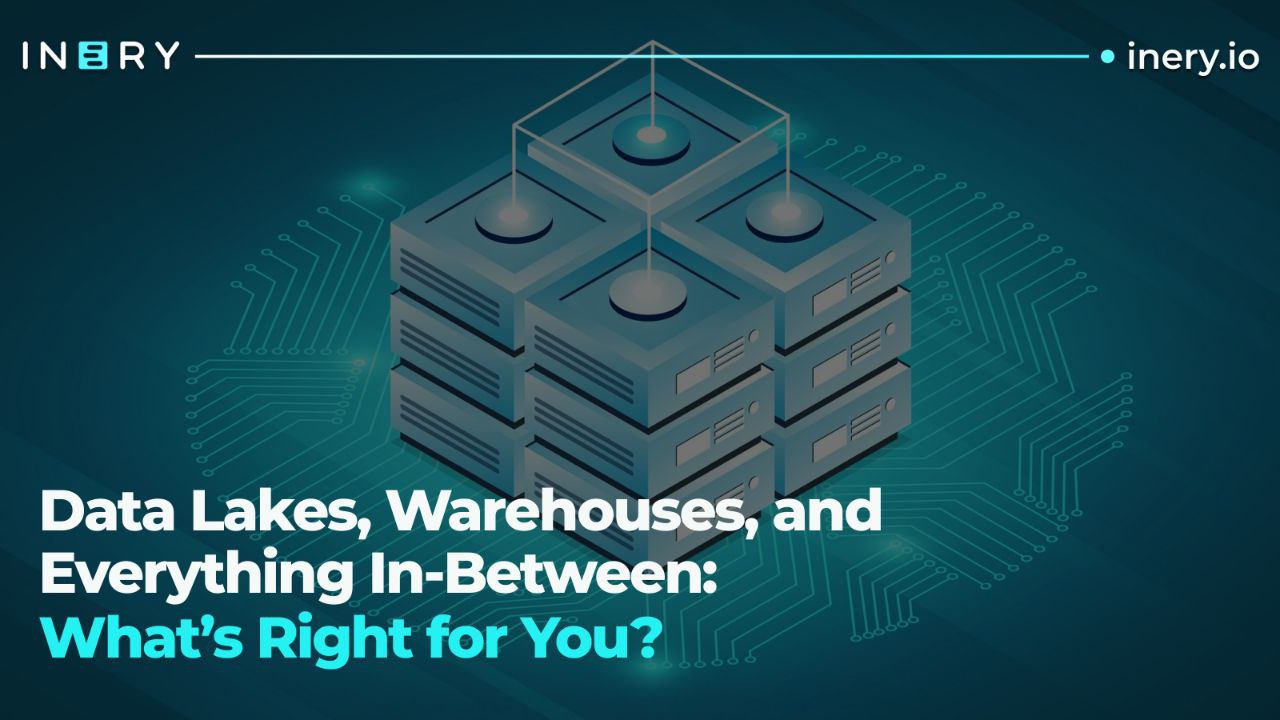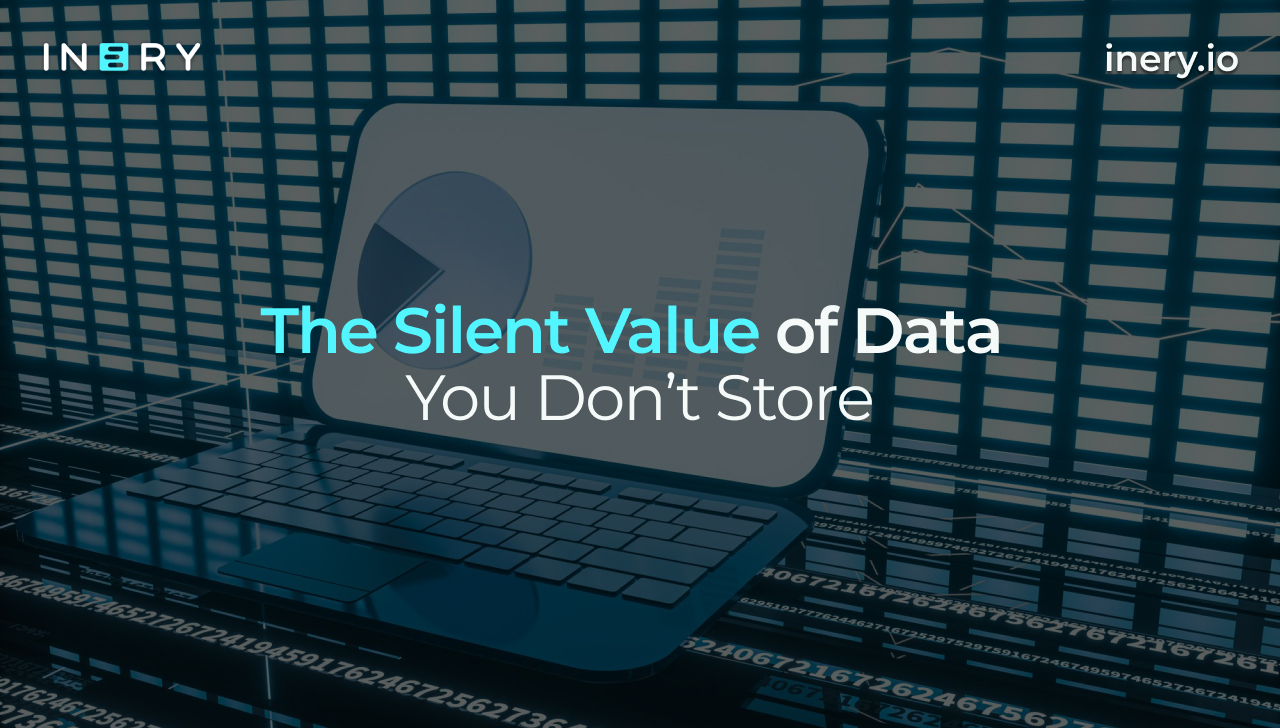You can look at enterprise resource planning (ERP) systems as the glue that keeps an enterprise together. They’re responsible for connecting and managing everything from accounting and procurement to supply chains and compliance.
With that in mind, it’s clear that ERP data needs to be secure and readily available to stakeholders. The problem is that it often isn’t; which has inspired some to consider blockchain database tech—like Inery—as a solution.
Problems With ERP That the Blockchain Can Fix
As an immutable, transparent, and distributed ledger, the blockchain comes in handy with some of the more common ERP issues.
Lack of Scalability
The computing resources needed to manage entities within an expanding enterprise grow exponentially. As the sheer size and complexity of the data increases, many organizations find themselves unable to meet their ERP needs effectively: performance dips, reliability goes out the window, and whole departments are left blind.
This is where Inery’s proprietary layer-1 blockchain comes in. Designed from the ground up to satisfy scalability needs, Inery Blockchain can handle upwards of 10,000 transactions per second—more than most blockchains operating today.
Low-cost, energy-efficient transactions are built into Inery Blockchain’s data infrastructure, ensuring that the overlaying applications can handle spiking traffic. Perhaps more importantly, the blockchain’s decentralized nature (paired with Inery Load Balancer) removes bottleneck issues common among centralized solutions.
Incompatible Data Types
Data incompatibilities are a common problem when integrating any new software into existing stacks. However, this problem becomes much more painful when talking about ERP: different departments often rely on different data types and structures, all of which an ERP solution needs to accommodate.
Inery’s database technology offers great flexibility in this regard. While it’s nominally a NoSQL DBMS solution, it has the ability to simulate SQL databases. As such, it’s able to process a whole host of data types. Using Inery’s Value Contracts, database developers can define the data structure needed to process and manage data for certain operations and applications.
Poor Security
Enterprise resource planning systems contain sensitive data from a variety of entities within an organization, making the need for ERP security great. But, nine times out of ten, companies’ ERP has shoddy authentication and permission protocols. That makes access to ERP data by unwanted parties much easier than it should be.
There’s also the single-point-of-failure (SPoF) factor, meaning a single weakness in centralized databases can crash entire systems. Centralized servers that crash or are breached cause an avalanche effect, toppling applications and departments connected to the compromised databases. As such, security measures are even more vital—and it’s even more dangerous when they are ignored.
While it can handily deal with scalability and a variety of data types, Inery’s true utility for ERP lies in its security. For one, it’s decentralized across a network of functionally independent nodes. As such, one or more servers that lose connection will not impede ERP database performance. Secondly, access to data is made available only through private keys, creating a clear permission structure and ensuring data privacy.
Operation Frankensteining
In this context, Frankensteining is a term that describes the use of more than one software program for the same task. It often arises because departments or teams become too used to the old way of doing things, but it can also happen due to how the tech infrastructure was set up initially: different solutions used by different teams on certain overlapping tasks. Nevertheless, it leads to unnecessary inefficiencies and complexity, as data cannot efficiently pass from application to application.
Inery can help remove Frankensteining in ERP systems. Its robust capabilities make it an adequate alternative to whatever current solutions are doing. Moreover, it creates a transparent, easily auditable system. It can even automate certain processes via Value Contracts, making it all the easier for employees to adjust to the Inery environment.
Inery ERP: a Few More Benefits to Consider
Inery Technology can tackle the biggest hurdle innate to ERP systems and their integration. But it also offers some other tempting benefits. Here are a few of them:
- Boost data visibility: stakeholders across the company can access the most relevant information within the system. For instance, supply chain data can be fed into storage and manufacturing databases without hiccups.
- Increases traceability: product-related data on the blockchain can easily be tracked by the distributed, transparent ledger that is Inery Blockchain. This can be particularly useful in supply chains, but all departments from production to procurement stand to benefit.
- Greater automation: the use of Value Contracts can automate database operations and ensure data integrity. As such, ERP processes can become better optimized and cost-effective.
Unlock Success With Inery as Your ERP Solution
Enterprise resource planning systems are underrated but, all the same, a crucial part of larger organizations. A faulty ERP infrastructure can hold back entire projects and create major productivity leaks. Nonetheless, companies continue ignoring their potential to streamline operations.
Inery Technology offers a new, decentralized paradigm to the world of database management. Its unique database tools are highly customizable to the particular needs of the client enterprise. Therefore, all database problems are confronted and dealt with head-on with the ideal solution.
So take a quantum data leap with Inery, and unleash the potential of your data!

Inery•
1 year ago
Inery Tehnical Roadmap 2024
Discover Inery's 2024 Technical Roadmap, a testament to our dedication in revolutionizing blockchain technology. Explore milestones from refining Inery Blockchain V-2.0.0 to enhancing IneryQL and GUI, shaping the future of Web3 with groundbreaking advance ...READ MORE

Share

Inery•
1 year ago
Navigating the Scalability Trilemma in Blockchain Systems: Why Inery Stands Out
Explore how Inery addresses blockchain technology's scalability trilemma through its unique decentralized database management system and custom consensus mechanism. ...READ MORE

Share

Inery•
9 months ago
Data Lakes, Warehouses, and Everything In-Between: What’s Right for You?
Not all data storage is created equal. Explore the pros, pitfalls, and future of data architecture, and find out why Inery offers a new kind of control for modern organizations. ...READ MORE

Share

Inery•
3 years ago
Our Vision for Metaverse: To Connect a Disconnected World
Changing the dynamics of metaverse from a platform-specific approach to the interoperability of content between different platforms. ...READ MORE

Share
Most popular today

-1689860359.png)

